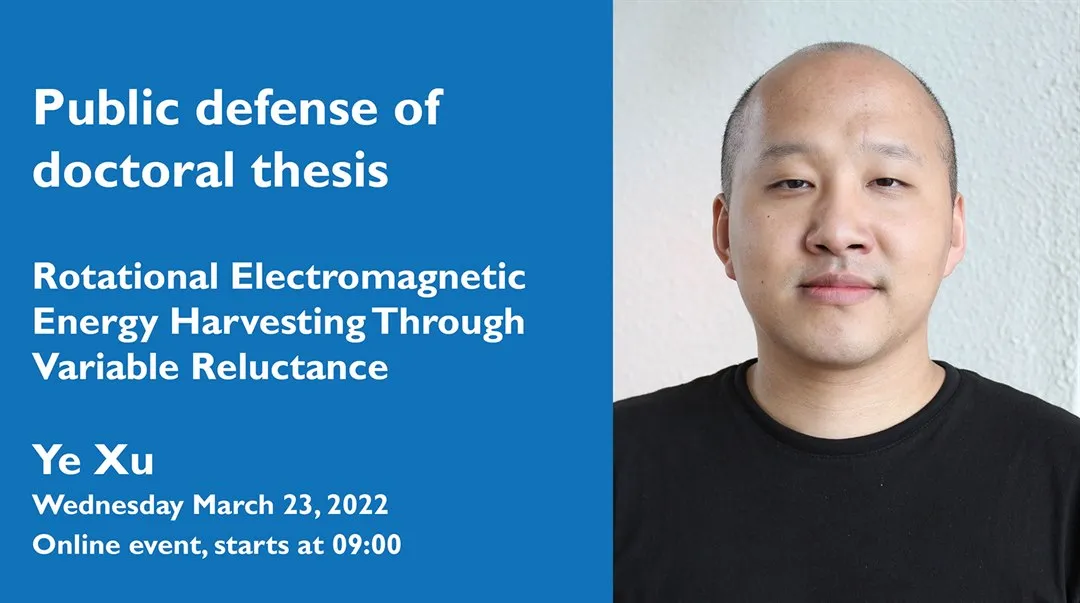Disputation i elektronik med Ye Xu
Välkommen till disputation i elektronik med Ye Xu som försvarar sin avhandling "Rotational Electromagnetic Energy Harvesting Through Variable Reluctance". Välkommen att delta på plats i Sundsvall eller digitalt.
Ye Xu
Avhandling: Rotational Electromagnetic Energy Harvesting Through Variable Reluctance
Handledare: Prof. Bengt Oelmann
Biträdande handledare: Docent Sebastian Bader
Opponent: Prof. Carlo Trigona, University of Catania, Italy
Betygsnämnd:
Dr. Alex Weddell, University of Southampton, UK
Prof. Mustafa Arafa, American University in Cairo, Egypt
Prof. Kent Bertilsson, Mid Sweden University, Sweden
Sammanfattning
Rotating components are found in a majority of modern industrial applications. As key parts for machinery operations, rotating components need to be monitored in order to detect and prevent machine failures. This requires various sensor devices, which are electronic systems that detect and respond to physical quantities obtained from rotating components or their surrounding environments With the rapid development of semiconductor technology, sensor devices have low power consumption, enabling energy harvesting to remove the dependence on battery or wired power solutions and thus leading to self-powered sensing applications. The kinetic energy of rotating components provides a ubiquitous and stable energy source that can be exploited, resulting in rotational energy harvesting as a promising solution to produce electrical power for sensor devices.
The research in this thesis focuses on the rotational energy harvesting by means of variable reluctance (VR) principle. In the literature, despite VR energy harvesting being a suitable candidate for the conversion of rotary kinetic motion, a comprehensive study on this energy harvesting system is still lacking. Moreover, low rotational speeds lead to a low level of extracted energy and negative mechanical effects on the rotary host which makes the deployment of a VR energy harvesting to achieve a self-powered sensing application in rotating environment challenging, requiring a closer investigation on the design and implementation. Based on theoretical analyses and numerical simulations, combined with experimental validations, this research expands on the study of VR energy harvesting by exploring various structural designs, introducing a systematical optimization, demonstrating a sensing application, and investigating different circuits for AC/DC energy conversion to minimize the circuit losses. The results of this research provide a guideline for enhancing the performance of VR energy harvesting in low-speed rotational applications, which expands the research field on energy harvesting for realizing self-powered wireless sensing systems used in rotating environments.



